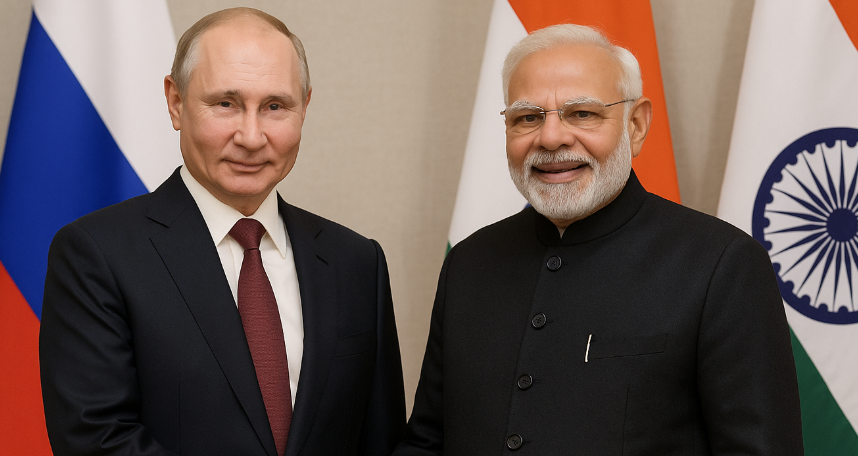
Putin’s Bold Offer to India Amid Rising US-Pakistan Proximity: A New Era of Indo-Russian Alliance?
The recent developments in global geopolitics are taking sharp, unexpected turns, particularly involving the United States, Russia, India, and Pakistan. In a move that could significantly backfire for Washington, U.S. President Donald Trump, invited Pakistan’s Army Chief, General Asim Munir, for a high-profile lunch in the United States. This gesture, seen as a strong overture toward Pakistan, is raising serious questions about the strategic balance in South Asia, especially at a time when the U.S.-Russia relationship is strained to one of its worst levels in recent history.
While the U.S. warms up to Pakistan, India appears to be moving even closer to Russia, seizing opportunities that could reshape global alliances. At this crucial juncture, Russian President Vladimir Putin has extended a significant economic proposal to India. Speaking at the St. Petersburg International Economic Forum, Putin publicly announced that Moscow is prepared to finalize a long-term economic cooperation roadmap with India, stretching all the way to 2030. This offer comes with tremendous potential for India, as it aims to deepen bilateral trade, investment, and strategic cooperation with Russia.
Putin emphasized that both nations had already agreed to draft long-term cooperation plans with key partners and that these plans, especially with countries like India, should now be expedited. He highlighted Russia's focus on expanding its oil and gas exports — a sector where India has increasingly become a major partner for Russia amid Western sanctions. To achieve these ambitious goals, Putin outlined a multi-pronged strategy: developing stronger partnerships, eliminating trade barriers, identifying new markets, constructing vital infrastructure, and boosting investments.
These developments hint at substantial Russian investments in India, while trade relations between the two nations could scale unprecedented heights. This growing Indo-Russian proximity is poised to increase tensions in Washington, as it challenges America's efforts to counter Russia’s influence on the global stage. Putin’s declaration of a "new world order" now emerging — which he described as an "inevitable sunrise" — reflects Russia’s intent to reshape global power structures, ensuring that the interests of a broader set of nations, including India, are safeguarded.
Furthermore, Putin underlined the role of futuristic technologies, such as Artificial Intelligence, as critical pillars of future economic growth. He acknowledged the progress India has made in AI, indicating that technological cooperation could become another key element of this strengthening partnership. By addressing the India-Russia Business Forum, Putin made it crystal clear that new avenues of economic cooperation are opening up, underpinned by deepening trust and shared interests between the two nations.
In this unfolding global chessboard, Washington’s recent diplomatic embrace of Pakistan could prove counterproductive. As Russia and India move closer economically and strategically, the United States may find its regional influence diluted. Putin’s timely and bold economic offer provides India a rare opportunity to not only diversify its global partnerships but also to accelerate its own development in alignment with Russia’s vast resources and strategic intent.
The world is watching closely as India considers its options. Should New Delhi finalize this proposed 2030 economic cooperation plan with Moscow, it may mark the beginning of a robust new chapter in Indo-Russian relations — one that could redefine power equations not just in Asia but across the entire world.
Disclaimer:
The content of this article is based on publicly available reports and statements. The opinions and interpretations presented here are for informational purposes only and do not represent official policy positions.




